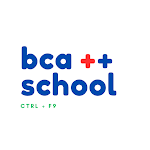In C#, the `MessageBox` class is commonly used to display dialog boxes that provide information, ask questions, or prompt the user for input. The `DialogResult` enumeration is often used in conjunction with the `MessageBox` to determine which button the user clicked. Here's an example of using the `MessageBox` with the `DialogResult` class:
```csharp
using System;
using System.Windows.Forms;
namespace DialogResultExample
{
public partial class MainForm : Form
{
public MainForm()
{
InitializeComponent();
}
private void showMessageButton_Click(object sender, EventArgs e)
{
// Show a MessageBox with Yes, No, and Cancel buttons
DialogResult result = MessageBox.Show("Do you want to save changes?", "Confirmation", MessageBoxButtons.YesNoCancel, MessageBoxIcon.Question);
// Check the result of the user's choice
if (result == DialogResult.Yes)
{
// User clicked Yes
MessageBox.Show("Changes saved!", "Information", MessageBoxButtons.OK, MessageBoxIcon.Information);
}
else if (result == DialogResult.No)
{
// User clicked No
MessageBox.Show("Changes not saved.", "Information", MessageBoxButtons.OK, MessageBoxIcon.Information);
}
else
{
// User clicked Cancel or closed the dialog
MessageBox.Show("Operation canceled.", "Information", MessageBoxButtons.OK, MessageBoxIcon.Information);
}
}
}
}
```
In this example:
1. We have a `MainForm` with a button (`showMessageButton`) that, when clicked, displays a MessageBox with Yes, No, and Cancel buttons.
2. The `MessageBox.Show` method returns a `DialogResult` representing the button clicked by the user.
3. We use a `switch` or `if-else` statement to check the `DialogResult` and take appropriate actions based on the user's choice.
This is a simple example, and you can customize the `MessageBox` to suit your specific needs by choosing different buttons, icons, and other options provided by the `MessageBox` class.

.png)